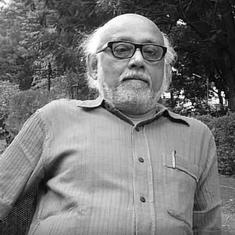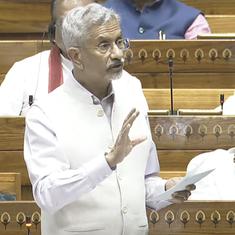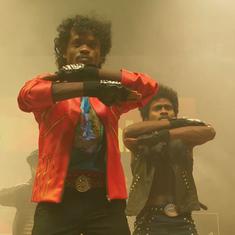Siddharth P Malhotra’s Maharaj is based on a centuries-old legal matter that resonates in the present. The Hindi-language Netflix release is a fictionalisation of the Maharaj Libel Case of 1862, in which a Vaishnava sect’s leader sued a Gujarati journalist for reporting that the godman was sexually exploiting his female devotees.
Sourabh Shah’s Gujarati novel Maharaj serves as the basis of Vipul Shah’s screenplay. At the Pustimarg sect’s ashram in colonial-era Mumbai, Yadunath (Jaideep Ahlawat) uses the euphemism “charan seva” to force sexual relations on young women. The progressive-minded journalist Karsan (Junaid Khan) is horrified that his fiancee Kishori (Shalini Pandey) is one of Yadunath’s victims.
Yadunath justifies his actions by claiming that he is an embodiment of God. His followers, who refer to him by the K-Popesque moniker JJ, agree. Karsan sets out to expose Yadunath with the help of other like-minded dissidents, including the feisty Viraaj (Sharvari).
Recent films and shows that have portrayed badly behaved spiritual gurus and their brainwashed devotees include Prakash Jha’s engrossing web series Aashram. Apart from reaching back in time to remind us that sexual exploitation by religious leaders as well as attempts at legal censorship are hardly new, Malhotra’s movie fails to make a case for itself.
The film is barely convincing as a period production. The makers are equally unable to depict the sensitivity of religious feeling or the monumentality of Karsan’s decision to take on a powerful sect. It’s hard to critique cultish behaviour when there’s no curiosity behind the sentiment that leads to such behaviour.
Details that might have been interesting to contemporary viewers remain unexplored, especially the prevalence of social reform movements within Hinduism in the nineteenth century. Bhai Daji Lad – a renowned Mumbai personality who has a museum in the city named after him – suddenly appears without explanation and then disappears.
Instead, the ferment of the times is synopsised in an exchange between Karsan and his father.
Daddy: How can you have such disgusting ideas as widow remarriage and women’s education?
Karsan: How can you not!
The impossibly noble Karsan is a bore, as such characters tend to be. Maharaj cautions against hero worship but doesn’t actually mean it. Karsan has several scenes in which he earnestly declaims on the difference between true faith and herd mentality.
The cast includes the usual crop of British and American actors with work visas that allow them to appear in locally produced movies. The main leads are barely impressive too.
Yadunath, played by Jaideep Ahlawat with the smug smile of the omnipotent guru, is monotonously creepy. Aamir Khan’s son Junaid Khan struggles to fit into a role for which the debutant actor is as yet unsuited. Karsan has neither the gravitas nor the charisma to convert Yadunath’s flock to his side, but the movie persists in thinking otherwise.










